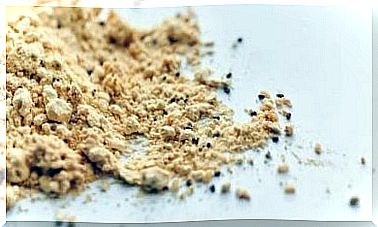What To Choose: Heavier Weights Or More Repetitions?

Anyone who goes to the gym or exercises at home has often asked themselves this question: What should I choose? Higher weights or more repetitions? The answer depends on your goal. To find out more useful information on this topic, read the article below.
What to opt for: heavier weights or more repetitions?

This dilemma is on the minds of many people, accompanied by other questions such as: what is the most effective method for developing and strengthening muscles or how to lose weight more easily?
- First of all, it is necessary to clarify an important issue. In order to make progress in the gym and to achieve various physical and sports goals, you need to adopt different workouts.
- Therefore, every few days, some changes or improvements are needed.
If you always lift the same weight, do the same number of repetitions or run at the same speed, your body gets used to it and reaches a certain lower “threshold”. This is his way of signaling that he has reached his limits and you do not have to make a greater effort. Thus, the consequence of this habit is precisely the lack of progress or change.
Although your body is gaining a lot of endurance (good news, by the way), you don’t have to cling to it and always follow the same training. In addition, it is very boring.
Changes are necessary because they give you the opportunity to evolve and get closer to achieving your goals.
If you want to build muscle mass, you have to constantly lift more weights than you are used to. It does not matter the number of repetitions, but the kilograms added to the dumbbell or devices used. As already mentioned, the body gets used to it, which is why extra weight is very important.
But be careful. The goal is not physical overstraining. This can cause muscle and joint injuries that, in addition to being painful, prevent you from achieving your goals.
It is not recommended to suddenly add a much heavier weight. This process must be slow.
More repetitions = a bigger evolution?
As for the number of repetitions, it is said that we have “permission” to change it at will or reduce it when we add heavier weights. The problem is that after a while, the body reaches that threshold of comfort again. Thus, if you do not change anything, you cannot evolve.
Instead of lifting heavier weights, it is recommended that you do more reps with the same weight. When the weight or number of repetitions is no longer a challenge for you, change one of the two variables.
By doing more repetitions, you become stronger because you develop your muscles and your body becomes more resistant to fatigue. In addition, you can burn more fat and calories.
Increasing the number of repetitions should not always be accompanied by weight gain. On the contrary, it is good to alternate them.
A beneficial technique in strength training is to lift lower weights, but do more repetitions. In this way, you focus on the movements performed and prevent injuries caused by being overweight when the body is not sufficiently prepared.
It is not recommended to exceed 16 repetitions when lifting weights. If it seems small to you, it means that you have to increase the weight.
In order to evolve gradually, it is necessary to alternate between increasing weight and increasing the number of repetitions.
For muscle strength, what should I choose: heavier weights or more repetitions?

Hypertrophy (increased muscle mass) is one of the main goals in the world of fitness. In this regard, it is necessary to cause muscle damage that leads to protein synthesis and the development of muscle fibers (during the recovery process).
- This process is influenced by three factors: mechanical stress, metabolic stress and muscle damage.
- To increase muscle mass, you need to perform between 3 and 5 sets of maximum 12 repetitions with breaks of 1 – 3 minutes.
Strength and endurance are the main goals of athletes. Thus, when it comes to choosing between heavier weights or more reps, you need to consider each of the two targets.
- In order to gain strength, it is recommended to perform between 4 and 8 sets of 1 – 3 repetitions with as many weights as possible.
- To increase endurance, it is advisable to lift lower weights, but to perform more repetitions (12 – 16).
Heavy weights give you more strength, but this type of training poses certain risks, such as injuries or adjustment problems.
Lower weights are less “harmful”, but the results are also less spectacular. If done in a well thought out way, under the guidance of a specialist, both types of training can be beneficial.
For burning fat: higher weights or more repetitions?

This is another common dilemma in the gym. Even though there are many myths on this subject, the truth is that choosing the right weight and number of repetitions and increasing them every few weeks (depending on your progress) is the best decision.
Many people associate burning calories with aerobic exercise (such as a treadmill or stationary bike) and not with lifting weights. In reality, the combination of the two types of exercises is the best way to lose weight.
It is also not true that you burn more fat if you do more repetitions. The results depend on the intensity with which you train.
- Lifting heavier weights less often increases muscle mass and reduces fat.
If you want to burn calories and develop your muscles, you need to opt for a higher weight and fewer repetitions. But if your only goal is to lose weight, it is advisable to do more repetitions with lower weights.









